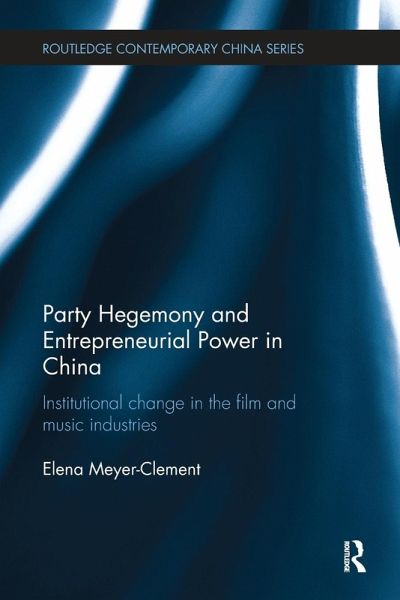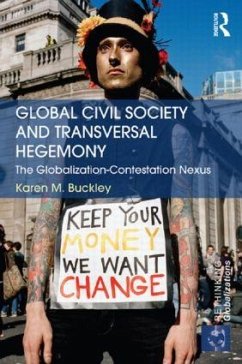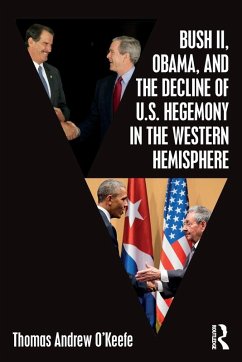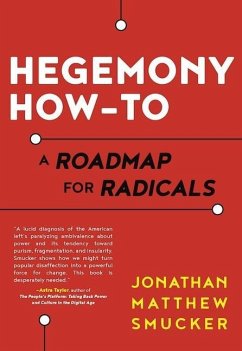
Party Hegemony and Entrepreneurial Power in China
Institutional Change in the Film and Music Industries
Versandkostenfrei!
Versandfertig in 1-2 Wochen
65,99 €
inkl. MwSt.
Weitere Ausgaben:

PAYBACK Punkte
33 °P sammeln!
This book explores the adaptability of the Chinese Communist Party's (CCP's) hegemonic rule to marketization and commercialization processes. In addition, it gives a detailed account of the political and economic history of the Chinese film and music industries and offers a fresh perspective on the origins of today's Chinese cultural mainstream.














